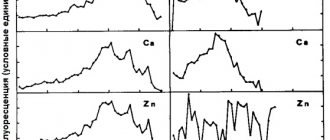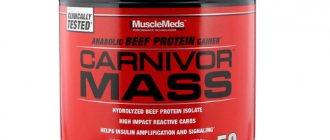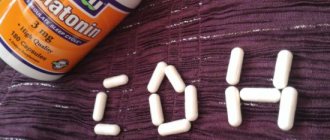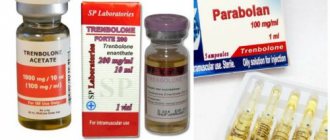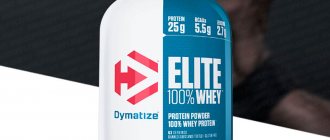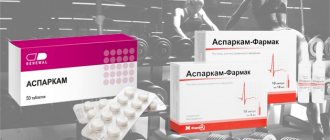Nonessential amino acids are produced in the body, but essential amino acids are not. As such, they must be supplied with food ().
In this article you will learn about what L-arginine is, what beneficial properties it has, what diseases and conditions it is used for, side effects and contraindications are discussed, and much more.
What is arginine for?
Arginine stimulates the formation of testosterone, which allows you to quickly develop muscle structure and burn subcutaneous fat. Due to this, arginine is considered a fat burner and is used during cutting in bodybuilding or simply for weight loss in women.
Arginine is a popular nitrogen donor. It is needed for the synthesis of muscle cells, and if it is deficient, muscle building is impossible. In addition, with arginine deficiency, the tone of blood vessels decreases, blood pressure rises and muscle nutrition with useful substances deteriorates, which also leads to a decrease in their growth level.
Arginine also changes the nitrogen balance of the blood, which increases blood circulation and the pumping effect (pumping blood into the muscles). This effect is noticeable when performing several exercises in a row on one muscle group: they become larger and harder, but temporarily. The advantage of pumping is that this way more nutrients reach the muscles - this allows them to grow faster.
In addition, arginine is an antioxidant, that is, it protects the body from free radicals, improves immunity and reduces the level of bad cholesterol in the blood, preventing atherosclerosis.
Content in food
High levels of arginine have been found in seeds, seafood, meat and legumes. Calculation per 100 g of product:
- pumpkin seeds – 5.4 g;
- peanuts – 3.5 g;
- sesame – 3.3 g;
- almonds – 2.5 g;
- pine nuts – 2.4 g;
- walnuts – 2.4 g;
- sea snails – 2.5 g;
- peas – 2.2 g;
- shrimp and tuna fillet – 1.8 g;
- chicken fillet – 1.4 g;
- salmon – 1.2 g;
- pork and beef – 1.2 g;
- white fish – 1.1 g.
Dairy products, dried fruits, chocolate and gelatinous foods are also sources of arginine, but its content there is much lower: less than 1 g of the substance per 100 g of product.
Release forms
Arginine is sold separately or in combination with other supplements, and is available in the form of tablets, capsules, powder, ampoules and liquid. Dosages vary widely, ranging from 500 to 16,000 mg per serving.
Compatibility
To reduce the amount of subcutaneous fat as much as possible, you need to combine the intake of arginine and L-carnitine - their tandem affects the synthesis of somatotropin, which is considered the best fat burner.
By improving blood circulation, arginine will help improve erections when taken with yohimbine hydrochloride (HCL).
Arginine and creatine are a common pair in sports nutrition, which, when taken simultaneously, gives a strong and almost instant burst of energy, allowing you to exercise more effectively. Due to this, muscle mass is gained.
How to take it correctly
Arginine is produced by the body and comes into it through food, but this amount may not be enough for some people. Among them: adolescents during puberty, sick people and athletes during intense training. For this reason, arginine is taken additionally as a supplement.
It is best to do this an hour before training so that the amino acid has time to take effect. The next dose should be before bed - this helps maximize muscle growth, as l-arginine activates testosterone.
If you don’t plan to workout, you should take arginine in the morning and before bed.
The dosage is selected individually: 100 mg of arginine per 1 kg of weight. In order not to slow down the absorption of the amino acid, you should drink it on an empty stomach - either before meals or after an hour and a half.
Contraindications and side effects
Contraindications for this substance are quite familiar:
- pregnancy and lactation;
- childhood;
- herpes;
- kidney and liver diseases;
- schizophrenia.
Before taking arginine, it is better to consult a doctor and undergo an examination - this will help avoid possible side effects: diarrhea, nausea, vomiting or weakness. They usually occur with an overdose of arginine (more than 15 g per day), but if such effects occur, it is better to reduce the dose.
Arginine is an amino acid aimed at muscle growth and protection of the human circulatory system. For maximum effect, it should be taken correctly and combined with other supplements - this way, in addition to gaining muscle mass, endurance will improve and there will be a surge of energy for exercise.
Pregnancy and breastfeeding
L-arginine is used in pregnancy under certain circumstances, including preeclampsia.
L-arginine supplementation during pregnancy is usually prescribed and monitored by your healthcare provider for a specific reason, such as preeclampsia or risk of preeclampsia and intrauterine growth restriction (, ).
There is some evidence that supplementing with L-arginine may improve pregnancy outcomes and fetal and maternal health.
This is due to the fact that due to the development of the fetus and the growth of the placenta during pregnancy, the body's need for L-arginine increases. This increased need may not be met by diet, especially in women living in low-resource settings without access to protein-rich foods ().
Additionally, although the increased arginine requirement during pregnancy can be met through diet, protein supplements or individual amino acid supplements may be required in certain circumstances.
This may be relevant for women who follow strict diets or experience severe nausea and vomiting during pregnancy, leaving them unable to meet their nutritional needs.
However, supplements during pregnancy should always be approved and reviewed by a doctor. If you are pregnant and interested in taking L-arginine supplements, consult your doctor for advice.
L-arginine supplementation has not been studied among breastfeeding women. For this reason, you should consult your healthcare provider before taking L-arginine supplements.
Benefits of L-arginine
L-arginine is an important amino acid that is absolutely necessary for the body of any person and is widely used in medicine:
- is produced in blood vessels and helps them maintain the desired diameter. It should be understood that it supports the expansion of coronary and other arteries, and does not expand them at all (manufacturers of dietary supplements for bodybuilding sometimes make mistakes or deceive their customers in this matter);
- helps lower the lower limit and maintain normal blood pressure levels, therefore it is used in the treatment of cardiovascular diseases;
- has pronounced regenerative properties, therefore it is extremely important in the processes of preserving youth and fighting old age;
- stimulates the activity of the thymus gland (which produces T-cells responsible for cellular immunity), helping to strengthen the immune response when attacking the body of various bacteria, viruses, tumors, therefore it is widely used in the prevention and treatment of AIDS, diseases of the immune system, and infectious diseases;
- The ability of L-arginine to slow down the growth of tumors has been scientifically confirmed, therefore it is used in the treatment of cancer;
- regulates the functioning of the pituitary gland and promotes the production of many hormones, including growth hormone;
- in the presence of glucose, it stimulates the production of insulin, therefore it is used in the treatment of diabetes;
- reduces oxidative stress and is a powerful antioxidant;
- used in the treatment of liver diseases (including cirrhosis) and kidney diseases (for weakening, injuries and disorders);
- normalizes the functioning of the prostate gland, helps increase blood flow to the genitals, promotes sperm production, therefore it is used to treat infertility in men;
- helps maintain normal cholesterol levels;
- protects the body from the toxic effects of ammonium ions (dangerous because their decomposition releases toxic ammonia, which irritates and destroys the respiratory system, mucous membrane, eyes, and also, according to some studies, affects the development of mental disorders);
- promotes protein production and muscle building;
- Helps reduce body fat reserves.
Improving health: arginine and metabolism
This substance is one of the key elements that actively participate in various biochemical processes. Arginine and metabolism
closely connected. Nitric oxide affects nerve endings and the quality of transmission of nerve impulses, thereby having a beneficial effect on the state of the nervous system. Taking the drug normalizes sleep, improves mood, increases stamina, and gives strength for creative activity.
By stimulating the production of growth hormone, this amino acid increases resistance to various diseases and also accelerates recovery processes in muscle tissue. Arginine
Helps speed up
metabolism
by reducing body fat and increasing muscle mass. This has a beneficial effect on weight loss, increased tone and improved appearance of a person.
The substance has a stimulating effect on the production of sex hormones and is used to
improve potency
and to prevent infertility.
It is also a good stimulant of the immune system
and is recommended both as a prophylactic to
strengthen the immune system
and in the treatment of serious diseases associated with
weakened immunity
. Its ability to dilate and relax the walls of blood vessels ensures proper blood microcirculation, reducing the risk of blood clots and increasing arterial tone. It finds application in the treatment of hypertension and atherosclerosis.
Arginine is also necessary for normal liver function.
, actively helping to cleanse toxins and protein breakdown products.
Undegraded residues of the substance are involved in the most important process in the human body - the synthesis of new proteins and the formation of muscle tissue from them. The amino acid, by stimulating blood circulation, promotes the transfer of oxygen and nutrients to tissues and organs. For this reason, cosmetologists often include it in products for healthy skin and hair
.
Functions of amino acids
Arginine performs important functions in the human body. Its content depends on age. Healthy adults are often not deficient in the amino acid. But in the bodies of children and the elderly the substance is not produced enough. Adults may experience amino acid deficiency after prolonged or heavy physical activity. This condition can be corrected by taking arginine in foods.
The most important function of an amino acid is to produce nitric oxide from it. Previously, it was believed that this was an extremely harmful substance. But recently, scientists have discovered the positive effects of nitric oxide on the body. It turned out that the person really needed it. Functions of Nitric Oxide and Arginine:
- Reducing the production of stress hormones, which helps cope with stress.
- Normalization of blood pressure. Stimulates the functioning of the heart and blood vessels. The substance helps cleanse blood vessels from cholesterol plaques and prevent atherosclerosis.
- Elimination of conditions for diffuse spasm of the esophagus.
- Stimulating the immune system. Thanks to this, inflammatory processes pass faster and the rate of wound healing increases. The amino acid destroys viral and bacterial cells, curing infectious diseases.
- Regulating the death of old cells, which contributes to the treatment of cancer.
- Increased production of growth hormone somatotropin.
- Improves fat burning and promotes energy metabolism. If the body does not receive enough glucose, this amino acid will help replenish the lack of energy.
- Acceleration of metabolism in general.
- Stimulating muscle mass growth.
- Increased sexual activity.
Arginine affects the functioning of the pituitary gland, activating it, due to which a person acquires a good mood, energy and strength. If a person does not produce enough amino acids, he can feel it through several signs.
What are the benefits of arginine?
Arginine is necessary for the body; it interacts with other amino acids, for example, valine, glutamine, forming compounds that have the most beneficial effect on appearance and general well-being. Its deficiency leads to the development of various pathological processes. This amino acid serves as a building material for all our organs. For girls, arginine is an indispensable supplement for PMS: it improves mood and increases performance. In addition to the above-mentioned beneficial properties, this supplement also boosts immunity and promotes rapid wound healing.
It is taken at night for deeper sleep and activation of growth hormone.
It helps restore erectile function and improves sperm quality. In one study, young men took 500 mg of arginine per day. As a result, their sperm showed a noticeable increase in the number and motility of sperm.
As we can see, this supplement has a lot of positive properties. Currently, scientists are studying in detail the effect of arginine on the aging process, and it is already known that it stimulates the production of growth hormone and testosterone. Arginine is also responsible for the transmission of nerve impulses and their activity.
Side effects when using arginine
L-arginine affects the excretion of nitrogen metabolism products, and therefore may have an adverse effect on the excretory organs. Some liver and kidney functions may be impaired by supplemental use of this amino acid. L-arginine can also lead to potassium imbalance and lead to dehydration, abdominal cramps, nausea and other digestive problems.
Circulatory side effects may also occur when using arginine. Because arginine dilates blood vessels, it increases the risk of excessive bleeding. This amino acid should not be used by people after a heart attack or stroke, patients with hemophilia, or people taking blood thinners (ginkgo biloba, ginger, etc.). In rare cases, L-arginine can cause low blood pressure. People with sickle cell disease should also not use this amino acid because symptoms of the disease may worsen. This amino acid increases blood sugar levels and should not be used by people with diabetes.
One of the most serious potential side effects of L-arginine is anaphylactic shock. This is a very severe allergic reaction that can lead to shock and even death. An anaphylactic reaction is manifested by a complex of symptoms: sudden chills, sweating, tremors, vomiting and diarrhea, shortness of breath and dizziness or fainting. If you are prone to allergies, do not take L-arginine until you have determined that you are allergic to it. People suffering from bronchial asthma should not use this amino acid. There is evidence that L-arginine worsens asthma (dilates blood vessels, which can increase inflammation in the lungs).
Arginine and human growth
If L-arginine stimulates the production of protein, especially creatine, then isn't this amino acid a natural remedy that promotes human growth? Yes and no. The fact is that scientists have not yet studied all the effects that L-arginine has on the body. Arginine has been approved by the FDA for the treatment of certain human growth disorders. In these studies, arginine was administered into the body. Its presence helps doctors determine growth hormone levels. L-arginine may stimulate the activity of certain hormones, including human growth hormone. However, L-arginine interacts with hormones through numerous and complex reactions. It is likely that this amino acid contributes to human growth before birth. In people with chronic wasting diseases (like HIV/AIDS), L-arginine may help increase lean body mass.
When are arginine levels too high? Since the benefits of arginine for gaining muscle mass have been exaggerated, do not rush to take a supplement. Some people even experience hyperargininemia, which is when the body produces more of the amino acid than needed. In addition, there is a risk of side effects, especially in patients with a heart attack or high risk of cardiovascular disease. You should not add L-arginine to your diet unless you have consulted your doctor.
Use by certain population groups
The safety of L-arginine has been demonstrated in many populations, including pregnant women and the elderly. However, some people, including those with liver or kidney disease, should avoid taking L-arginine ().
In clinical settings, L-arginine supplements are sometimes given to children and are considered safe when given in appropriate doses. However, arginine supplementation in children should always be supervised by their healthcare provider.
It is not recommended to give your child L-arginine unless it is absolutely necessary for medical reasons and has been recommended by a doctor.
This recommendation is extremely important to follow because giving your child too high a dose of L-arginine can cause serious side effects and can even be fatal ().
Recommended dose and side effects
The best source of l-arginine is naturally food, but don't forget about supplements. Doctors often prescribe it for heart disease, migraines, infections, complications of diabetes, as well as to boost immunity in patients with HIV and cancer. How many times a day and in what dosage is determined only by a doctor.
Dosage Tips:
The recommended daily intake will largely depend on the intended use. For heart disease and ED, 3-6 grams are prescribed. per day, divided into 2 times. To increase the effectiveness of training, 9 g per day is prescribed. The recommended daily intake for an adult for prevention and improvement of blood circulation is 1000 mg. in a day. Instructions for use of the supplement can also help with dosage issues.
Contraindications and side effects:
L-arginine is safe in normal amounts, but there is a summary table of side effects to be aware of. If you have a history of heart disease, low blood pressure, diabetes, kidney problems, or an active virus (herpes or shingles, for example), then it is not recommended to take L-arginine without first consulting your doctor.
If arginine comes from natural foods, then there is no need to worry, but high doses can complicate chronic diseases, especially if medications or other supplements are taken. In any case, to avoid side effects and not aggravate the situation, you need to consult a doctor.
Even with normal well-being and relative health, the daily dose is 1000 mg. may cause short-term unwanted effects, including abdominal pain and bloating, low blood pressure, diarrhea, worsening asthma, rash, or hives. There are also some contraindications. People with asthma or severe allergic reactions should be careful when taking L-arginine, as it may worsen the allergic reaction or cause swelling of the lungs or airways. El-arginine is safe for pregnant women and children, although few studies have been conducted in this category of people, so follow your doctor's recommendations or take the minimum dose.
Rate this article:
Contraindications
Since arginine is a natural substance that the body can produce on its own, it cannot cause harm by itself in food. However, when it comes to supplements, there are some contraindications. It is not recommended to take it:
- Pregnant women and nursing mothers;
- Persons with individual intolerance to the drug;
- Persons suffering from hypotension;
- Children during the period of active growth.
Arginine has not been fully studied, so on the Internet you can find many different opinions about the benefits and harms of this amino acid. In any case, before you start taking the supplement, consult a specialist. Exceeding the dose can lead to negative consequences and cause nausea, abdominal pain, weakness and malaise, and decreased blood pressure. In rare cases, allergic reactions are possible.
Arginine benefits and harms
Some people use L-arginine to prevent colds, improve kidney function (after a kidney transplant), and high blood pressure during pregnancy (preeclampsia). Improving athletic performance, boosting the immune system and preventing digestive tract inflammation in premature babies.
L-arginine is used in combination with other medications prescribed by your doctor. For example, L-arginine is used along with ibuprofen for headaches (migraines); with conventional chemotherapy drugs for the treatment of breast cancer; with other amino acids to treat weight loss in people with AIDS; as well as fish oil and other supplements to prevent infections, improve wound healing, and reduce recovery time after surgery.
Some people use L-arginine to speed up the healing of skin wounds and improve blood flow in the hands and feet, especially in people with diabetes. It is also used as a cream for sexual problems in both men and women.
The effectiveness of arginine
- Chest pain (angina). L-arginine reduces symptoms and improves exercise tolerance and quality of life in people with angina. However, L-arginine does not appear to treat the disease itself.
- Erectile disfunction. Taking 5 grams of L-arginine daily appears to improve sexual function in men with ED. Dose reduction may not be effective. However, there is some early evidence that supplementing with 40 mg of pycnogenol three times daily may increase the effectiveness of low-dose L-arginine for ED.
- High blood pressure. There is early evidence that taking L-arginine can lower blood pressure in healthy people, people with high blood pressure, and people with slightly high blood pressure with or without diabetes.
- Inflammation of the digestive tract in premature infants. Adding L-arginine to the formula appears to prevent inflammation of the digestive tract in premature babies.
- Nitrate tolerance. Taking 700 mg of L-arginine four times daily prevents nitrate tolerance in people taking nitroglycerin for chest pain (angina).
- Leg pain associated with poor blood flow (peripheral arterial disease). Research shows that taking L-arginine orally or intravenously (IV) for up to 8 weeks increases blood flow in people with peripheral arterial disease. However, long-term use (up to 6 months) does not improve walking speed or distance in people with peripheral arterial disease.
- Improved recovery after surgery. Taking L-arginine with ribonucleic acid and eicosapentaenoic acid before or after surgery may shorten recovery time, reduce infections, and improve wound healing after surgery.
- High blood pressure during pregnancy (preeclampsia). Although there are conflicting results about the effects of L-arginine on preeclampsia, most studies show that it can lower blood pressure in women with the condition.
Ineffectiveness of arginine
- Kidney disease. Most early studies suggest that taking L-arginine for up to 6 months, short-term, does not improve kidney function in people with kidney failure or kidney disease. However, taking 1.3 g. Oral L-arginine appears to improve renal function and reversible anemia in older adults with anemia associated with kidney disease.
- Heart attack. Taking L-arginine does not appear to help prevent heart attack. It will also not be helpful in treating a heart attack once it occurs. In fact, there is concern that L-arginine may be harmful to people who have recently had a heart attack. Do not take L-arginine if you have recently had a heart attack.
- Treatment of wounds. L-arginine does not improve wound healing.
Alternatives
Once consumed, your liver quickly metabolizes L-arginine before it can reach the systemic circulation. For this reason, some argue that L-citrulline, a precursor to L-arginine, may be a better choice for boosting arginine levels.
L-citrulline is an amino acid that can be used as an alternative to L-arginine when taken as a supplement.
L-citrulline is a nonessential amino acid that is a precursor to L-arginine. L-citrulline is converted to L-arginine through a series of enzymatic reactions that occur primarily in the kidneys ().
Research shows that L-citrulline supplements may increase L-arginine levels in the body. In fact, some studies show that L-citrulline is more effective at increasing arginine levels than L-arginine supplements (, , , , ).
Research has also shown that L-citrulline supplements may have properties similar to L-arginine supplements.
For example, some studies have found that, similar to L-arginine, L-citrulline helps lower blood pressure and alleviate erectile dysfunction (,).
Additionally, research shows that when L-citrulline is used alone or in combination with L-arginine, it can improve athletic performance and muscle recovery in athletes (, , , ).
Additionally, some of these studies have shown that citrulline supplements may be more effective than L-arginine supplements in improving athletic performance (, ).
Therefore, athletes may benefit more from L-citrulline or a combination of L-arginine and L-citrulline compared to L-arginine alone.
Tags: Amino acids, Arginine
- Related Posts
- Do collagen supplements help joints, skin, etc.?
- Lycopene: benefits, what products contain it
- Polyunsaturated fatty acids: what foods they contain, benefits
« Previous entry
Where can you find amino acids?
So, what foods contain arginine? There is a table of products, indicating not only the products, but also the daily intake of this substance.
Products containing arginine can be divided into dairy, meat and vegetable:
- Cereals and seeds. 100 grams of pumpkin seeds contain 5 grams of the hormone. If a person consumes approximately 40-50 pumpkin seeds per day, he will completely saturate the body with the required dose. In addition to pumpkin, arginine is found in sesame seeds, almonds, pine nuts, and many others.
- Meat and milk are the next group. It must be said that the hormone content in different types of meat allows you to make the menu varied. However, beef contains the most of this amino acid, followed by pork and finally chicken. When consuming 100 grams of meat, 2 grams of the required substance enter the body. But there is not much arginine in milk. For example, only 1% amino acid can be extracted from 100 grams of cottage cheese. Therefore, in order for the level of the substance under discussion in the body to always remain at the same level, products must be combined. The diet should contain meat and dairy products. This way you can get the required percentage of arginine.
- Fish products rich in arginine include anchovies, salmon and tuna. In addition, this substance is present in the meat of snails and squid. As for fish oil, it cannot be called a storehouse of amino acids - this substance is present in such a useful product in very small quantities.
Combination of Arginine with other drugs
Arginine (the instructions for use specifically indicate this) should not be taken with antihypertensive drugs:
- Captopril.
- Enalapril.
- Furosemide.
- Losartan.
- Amplodipine.
- Diltiazem.
- Valsartan.
Take with great caution with antidiabetic medications:
- Glimepiride.
- Glipizide.
- Tolbutamide.
- Insulin.
- Chlorpropamide.
- Amaryl.
Since Arginine lowers blood pressure, taking it together with ACE inhibitors can lead to high potassium levels and a decrease in blood pressure.
Inhibitors to consider when taking arginine:
- Benazepril.
- Quinapril.
- Cavptopril.
Medicines containing nitroglycerin, isosorbide dinitrate, which increase blood flow to the heart, can cause dizziness when taken together with arginine.
Some medications that slow down blood clotting, when taken together with arginine, increase the possibility of hematomas:
- Aspirin.
- Ticlopidine.
- Warfarin.
These are the drugs:
- Amiloride.
- Triamterene.
- Spironolactone.
- Diacarb.
With great caution, you should take the amino acid with herbal preparations, herbs, especially those that slow down blood clotting and lower sugar levels. Arginine and xylitol should not be taken together because xylitol keeps L-arginine from stimulating the pancreas and preventing it from releasing glucagen.
Rules for taking L-arginine
The doctor will tell you how to take the drug with L-arginine after examining the patient. After all, when prescribing a regimen and dosage of a drug, the doctor needs to know many parameters of a person, he must take them all into account. Of course, there are generally accepted standards; they can be regarded as starting points for calculations. It is known that the maximum dose that a person can take painlessly during the day is 3 grams. In the case of children, the dose is calculated taking into account their age.
If the dose of the drug is calculated for an athlete, for example a bodybuilder, you need an exact plan for his trainers and diet, and you also need to know the athlete’s weight. And even taking into account all this data, the dose cannot be exceeded by more than 10 grams. per day. In the case of athletes, you also need to have a clear idea of what he needs L-arginine for - to increase body weight or increase endurance
It is also important how many years he has been training, that is, he is a prostrate or a trained athlete
Arginine is found in natural products, but the drug that a person receives in its pure form has therapeutic value. It can be produced in the form of tablets, powder and gelatin capsules. The difference in the effect on the body does not depend on the packaging and the form of production. The main criterion here is convenience for each specific patient to take; some prefer capsules, others prefer tablets.
The drug is taken at different times, depending on who it is intended for. So the athlete should take L-arginine yes 30 before training, so that the drug has time to act on the vessels of the circulatory system, dilating them, thereby preparing them for physical activity.
Growth hormone, on the contrary, is taken before bedtime, since it acts on the child during sleep. In order for growth hormone to continue to be produced during the day, it is necessary to significantly increase the amount of the drug during the day.
You cannot take the drug with L-arginine with alcohol. It is also prohibited to eat fatty or fried meat while taking the drug.
Who is arginine contraindicated for?
It should be noted that in moderate quantities this amino acid is harmless. The substance can harm the body only in ultra-high doses and in the presence of certain disorders. So, arginine is contraindicated
to everyone who:
- individual intolerance due to hypersensitivity to individual active components;
- pregnancy and active breastfeeding period;
- severe renal and liver dysfunction;
- a number of serious mental illnesses (schizophrenia);
- children in the active growth phase due to the strong effect on hormones.
People with diabetes or high blood sugar should pay close attention to the use of the drug. It has been established that L-Arginine can cause hormonal imbalance.
Having considered the main beneficial properties of this amino acid, we can conclude that it is necessary for regular training and helps to recover after serious exercise.
Products containing arginine
Below are the main foods that contain arginine. To make it easier to compare, I provide data on how much you need to eat this product to get your daily requirement of arginine. Naturally, these are arbitrary figures - no one will eat 3 kg of sorrel every day, you just need to rationally structure your diet so that in total you can get the required share of this amino acid (and all the others too!)
In our food, arginine is found in products of both animal and plant origin. But do not forget that it does not have to enter the body with food (our body can produce it itself), but it is absorbed and works normally only in the presence of vitamin B12, which is found mainly in meat products.
Table 1. Top 30 animal products containing arginine
The daily requirement for arginine is 5.5 g.
| Product | Arginine, g per 100 g of product | How much product should you eat per day, g | |
| 1 | Lobsters, boiled | 2,30 | 239 |
| 2 | Beef, cooked | 2,19-1,71 | 251-322 |
| 3 | King crabs, boiled | 2,07 | 266 |
| 4 | Chicken, cooked | 1,74-1,48 | 316-372 |
| 5 | Skipjack tuna, baked | 1,69 | 325 |
| 6 | Coho salmon, boiled | 1,64 | 335 |
| 7 | Lamb, cooked | 1,60-1,45 | 344-379 |
| 8 | Baked trout | 1,59 | 346 |
| 9 | Skipjack tuna, canned in oil | 1,59 | 346 |
| 10 | Baked chum salmon | 1,54 | 357 |
| 11 | Bluefin tuna, baked | 1,54 | 357 |
| 12 | Turkey, roasted | 1,52 | 362 |
| 13 | River perch, baked | 1,49 | 369 |
| 14 | Baked burbot | 1,48 | 372 |
| 15 | Baked pike | 1,48 | 372 |
| 16 | Salmon / mackerel / cod, canned in its own juice | 1,45-1,36 | 379-404 |
| 17 | Buttermilk, dry powder | 1,24 | 444 |
| 18 | Sea bass, baked | 1,23 | 447 |
| 19 | Hard cheese (Parmesan, Swiss, Camembert, Mozerella) | 1,16-0,52 | 474-1058 |
| 20 | Flounder, baked | 1,10 | 500 |
| 21 | Whitefish, smoked | 0,98 | 561 |
| 22 | Chicken egg | 0,89-0,69 | 618-797 |
| 23 | Atlantic herring, salted | 0,85 | 647 |
| 24 | Oysters, boiled | 0,74 | 743 |
| 25 | Cottage cheese | 0,63 | 873 |
| 26 | Oysters, baked | 0,58 | 948 |
| 27 | Cheese. Feta | 0,47 | 1170 |
| 28 | Whey, dry powder | 0,38 | 1447 |
| 29 | Condensed milk with sugar | 0,29 | 1897 |
| 30 | Sheep milk | 0,20 | 2750 |
Do not forget that during the process of hot cooking and natural boiling of products, the amount of arginine in them changes. For example:
- arginine in raw meat is 35-40% less than in fried meat;
- in stewed meat there is 10-15% more arginine than in fried meat;
- when cooking seafood (oysters, lobsters, lobsters, etc.), the amount of arginine in them increases by 5-10%, and when baked, it decreases by 20-25%;
- raw and boiled eggs have the same amount of arginine, and fried eggs have 5-10% more.
Table 2. Top 30 plant products containing arginine
The body's daily need for arginine is 5.5 g.
| Product | Arginine, g per 100 g of product | How much product should you eat per day, g | |
| 1 | Pumpkin seeds | 4,76 | 116 |
| 2 | Soybeans | 3,10 | 177 |
| 3 | Sesame | 3,10 | 177 |
| 4 | Peanut | 3,09 | 178 |
| 5 | Almond | 2,43 | 227 |
| 6 | Pine nut | 2,41 | 228 |
| 7 | Sunflower seeds | 2,40 | 229 |
| 8 | Brazilian nut | 2,40 | 229 |
| 9 | Walnut | 2,30 | 239 |
| 10 | Hazelnut | 2,23 | 247 |
| 11 | Lentils | 2,20 | 250 |
| 12 | Peas | 2,09 | 263 |
| 13 | Pistachios | 2,02 | 273 |
| 14 | Cashew | 1,74 | 316 |
| 15 | Horseradish | 1,60 | 344 |
| 16 | Macadamia | 1,40 | 392 |
| 17 | Garden beans | 1,38 | 400 |
| 18 | Beans | 1,32 | 416 |
| 19 | Oats | 1,24 | 444 |
| 20 | Rice (black, brown, white) | 1,14-0,60 | 482-917 |
| 21 | Buckwheat | 0,91 | 604 |
| 22 | Rye | 0,66 | 835 |
| 23 | Garlic | 0,63 | 873 |
| 24 | Barley (barley) | 0,47 | 1 175 |
| 25 | Raisin | 0,44 | 1 261 |
| 26 | Millet (millet) | 0,38 | 1 444 |
| 27 | Corn | 0,33 | 1 662 |
| 28 | Mulberry | 0,32 | 1 719 |
| 29 | Cabbage (Brussels sprouts, broccoli, kohlrabi, cauliflower, cabbage) | 0,30-0,08 | 1 833-6 875 |
| 30 | Onions (chives, green, onions) | 0,20-0,19 | 2 709-2 865 |
Small amounts of arginine (0.1 to 0.2 g per 100 g product) can be found in (in descending order):
- parsnip root,
- mushrooms (vesheki, chanterelles, honey mushrooms),
- sea buckthorn
- spinach
- dill, parsley, basil
- Jerusalem artichoke,
- gooseberries,
- sorrel,
- potatoes,
- chili pepper.
In most fruits and berries, the amount of arginine is minimal (less than 0.01 g), so it is better to eat them not for the sake of arginine, but for the sake of other beneficial elements.
Arginine
(or L-Arginine) is a conditionally essential aliphatic amino acid.
Arginine is the main donor of nitric oxide and its transporter. Arginine supplies nitrogen to a system of enzymes called NO synthases, which synthesize NO, or nitric oxide. Nitric oxide is a mediator that regulates vascular tone in the arterial bed, on which blood pressure depends. With a lack of arginine and insufficient activity of NO synthases, blood pressure increases.
Arginine is involved in the cycle of transamination and removal of final nitrogen from the body, that is, the breakdown product of waste proteins. The body’s ability to create urea and cleanse itself of protein waste depends on the power of the cycle (ornithine - citrulline - arginine).
Arginine serves as a carrier and donor of nitrogen, which is necessary in the synthesis of muscle tissue; it was this function that was the main factor in the spread of arginine in bodybuilding. Arginine helps increase muscle mass and reduce fat with adequate physical activity. Arginine is a donor of nitric oxide, the discovery of its beneficial properties was awarded the Nobel Prize in Medicine.
Arginine in food
Arginine is a conditionally essential acid because it can be synthesized in the human body. However, the body cannot produce enough arginine, and some must come from food or sports nutrition. In bodybuilding, arginine is used in significant doses, as slightly different goals are pursued.
Arginine is found in products: cottage cheese, cheese, and other dairy products, meat, seafood, grains, nuts, etc.
Biosynthesis of arginine
Arginine can be synthesized in the body from:
- Citrulline
- Ornithina
- Dimethylarginine (ADMA)
Arginine in bodybuilding
Arginine is one of the most popular supplements that is available in its pure form and can also be found in other foods. Arginine plays an important role in muscle cell division, muscle recovery after exercise, injury healing, waste removal, the immune system, and also increases growth hormone production. However, the effectiveness of its use in bodybuilding remains controversial.
An important property of arginine in bodybuilding is its ability to improve erectile function, in this case it can be used in conjunction with yohimbine.
Claimed effects of arginine
- Nitric oxide donor
- Improves muscle nutrition
- Speeds up recovery
- Accelerates healing of injuries
- Reduces blood pressure
- Improves erectile function
- Improves creatine transport into muscles
- Promotes pumping
- Antioxidant properties
- Enhances the secretion of growth hormone
- Reduces bad cholesterol
- Strengthens immunity
Studies refuting effectiveness
Proc. Natl. Acad. Sci. USA LETICIA CASTILLO et al. Vol. 90, pp. 7749-7753, August 1993. Applied Biological Sciences Plasma arginine and citrulline kinetics in adults given adequate and arginine-free diets
Quote from the conclusion: Endogenous arginine synthesis is practically unchanged when this amino acid is used as a supplement.
J Nutr Biochem. 2008 Aug 15. Liu TH, Wu CL, Chiang CW, Lo YW, Tseng HF, Chang CK. No effect of short-term arginine supplementation on nitric oxide production, metabolism and performance in intermittent exercise in athletes.
Quote from the conclusion: The subjects took 6 g of arginine per day for 3 days, the control group took a placebo, after which a physical test was performed on an exercise bike.
Blood samples were taken before, during and after the test. There were no differences in blood nitric oxide concentrations between the control and experimental groups. There were also no differences in the content of lactic acid, ammonia and physical indicators of the subjects. Int J Sport Nutr Exerc Metab. 2009 Aug;19(4):355-65. Bescós R, Gonzalez-Haro C, Pujol P, Drobnic F, Alonso E, Santolaria ML, Ruiz O, Esteve M, Galilea P. Effects of dietary L-arginine intake on cardiorespiratory and metabolic adaptation in athletes.
Quote from the conclusion: There were no significant differences in cardiorespiratory parameters and blood nitrate concentrations.
In conclusion, L-arginine supplementation does not improve exercise performance. Atherosclerosis. 1995 Dec;118(2):223-31. Wennmalm A, Edlund A, Granström EF, Wiklund O. Acute supplementation with the nitric oxide precursor L-arginine does not improve cardiovascular performance in patients with hypercholesterolemia.
Quote from the conclusion: The introduction of L-arginine into the body led to an increase in its concentration in the blood, but the level of NO did not change.
Blood flow in the skin and forearm also did not change after administration of the amino acid. Circulation. 2007 Jul 10;116(2):188-95. Epub 2007 Jun 25. Wilson AM, Harada R, Nair N, Balasubramanian N, Cooke JP. L-arginine supplementation in peripheral arterial disease: no benefit and possible harm.
Quote from the conclusion: Taking L-arginine leads to a significant increase in its concentration in the blood plasma.
However, no change in nitric oxide levels or vasodilation was observed. Nutr Metab (Lond). 2012 Jun 12;9(1):54. Acute L-Arginine supplementation does not increase nitric oxide production in healthy subjects.
Alvares TS, Conte-Junior CA, Silva JT, Flosi Paschoalin VM.
Quote from the report (2012): Taking a single dose of up to 6 g of the supplement did not increase nitric oxide production in healthy young adults.
Measurements were taken 30, 60, 90 and 120 minutes after consumption. Conclusion
The effectiveness and feasibility of taking arginine in bodybuilding in order to improve muscle nutrition and achieve pumping remains in doubt. The above studies showed that arginine does not affect the production of nitric oxide and does not dilate blood vessels. From which we can conclude that the use of arginine in sports nutrition is pointless without the use of more powerful nitrogen donors.
In general, the situation with nitrogen donors in the world of sports nutrition is very vague. Every day there is an active search for new highly effective nitrogen donors, but until now ineffective components or even ineffective components are used in additives. At the same time, medicine has long been using a whole class of drugs that have a pronounced effect on blood vessels, significantly increasing the concentration of NO in the blood. The class of these drugs is called nitrates, the most common drugs of the class are nitroglycerin, nitrosorbide (isosorbide) and others. There is practically no data on the use of these funds in bodybuilding, but their use can be 100% justified.
Theoretically, isosorbide dinitrate, which has a long period of action, is well suited for use in bodybuilding. It should be noted that the dosage should be significantly lower than the therapeutic one, otherwise the NO level rises so high that a number of side effects will occur: headache, vascular pulsation, palpitations, decreased blood pressure, etc. It should be noted that all side effects will be associated with an increase nitric oxide concentrations.
Optimal doses
To gain muscle mass, arginine is recommended to be taken in doses of 3 to 9 g per day. The higher the dose, the more noticeable the effect, but it is not recommended to exceed the dose by more than 10 g. Start with the lowest dose, then gradually increase it. Powder forms are dissolved in cold water (1 glass), tablet forms are washed down with a glass of water.
Optimal appointment time
The best time to take arginine: before training, after training - to improve muscle nutrition and pumping. At night - to enhance the secretion of growth hormone.
Combination
Arginine is used not only as an independent supplement, but also as a transport system. By increasing blood flow in the muscles, arginine improves the delivery of all nutrients to muscle cells. In particular, it is used as a transport system for creatine, so it is advisable to take them simultaneously. Very often, arginine is included in pre-workout complexes.
Content in food
L-Arginine is found in many foods, both animal and plant origin. The table shows data on the arginine content per 100 grams of product and indicates the protein content.
| Product | Protein | Arginine | A/B |
| Pork raw | 20.95 g | 1394 mg | 6,7 % |
| Raw chicken fillet | 21.23 g | 1436 mg | 6,8 % |
| Raw salmon fillet | 20.42 g | 1221 mg | 6,0 % |
| Egg | 12.57 g | 820 mg | 6,5 % |
| Cow's milk, 3.7% fat | 3.28 g | 119 mg | 3,6 % |
| Pine nuts | 13.69 g | 2413 mg | 17,6 % |
| Walnuts | 15.23 g | 2278 mg | 15,0 % |
| Pumpkin seeds | 30.23 g | 5353 mg | 17,7 % |
| Wheat flour | 13.70 g | 642 mg | 4,7 % |
| Corn flour | 6.93 g | 345 mg | 5,0 % |
| Unpolished rice | 7.94 g | 602 mg | 7,6 % |
| Buckwheat bread | 13.25 g | 982 mg | 7,4 % |
| Dried peas | 24.55 g | 2188 mg | 8,9 % |
Side effects of arginine
When consuming arginine in large doses (more than 15 g per day), diarrhea, weakness, nausea, and a drop in blood pressure may occur. If side effects occur, reduce the dosage to a level at which you do not experience any discomfort.
Be careful with supplements containing arginine - too much of it can have negative effects on the pancreas. At least one published scientific study indicates that taking this amino acid has led to the development of pancreatitis, an inflammation of the pancreas.
What should the diet consist of?
In order to replenish the body with the missing amino acid, it is necessary to understand where it is found in larger quantities. After all, many products contain this substance, including meat and dairy products, as well as foods of plant origin.
Pumpkin seeds contain L-argenine
There are three groups of products that are a storehouse of conditionally essential amino acids:
- You can replenish the supply of amino acids in the body by introducing grains and seeds into your diet. For example, a product of this group, 100 grams of which contains about 5 grams of arginine, are ordinary pumpkin seeds. It is enough to consume only about 40 pieces daily in order to get the daily requirement of a substance useful for the body. You can get it by eating almonds, pine nuts, sesame seeds, and brown rice. The list of products in this group will appeal to both adults and children.
- The group that includes meat and dairy products is also rich in arginine. In addition, this substance is found in most types of meat, which allows you to diversify your diet. The first place in the table containing the list of products in this group is taken by beef, followed by pork and chicken. Together with the consumption of 100 grams of beef meat, about 2 grams of the necessary amino acid enter the body. The amount of arginine in dairy products is much less than in meat products. So, 100 grams of homemade cottage cheese or milk contains only 1% arginine. But, in order to maintain the required level of amino acids in the body, products from this group can be combined. By consuming meat, milk, and cheeses daily, you will be able to obtain the required amount of the substance responsible for the normal functioning of the body.
Beef contains L-argenine
The third group includes products that contain amino acids, but in small quantities. This is fish, for example, tuna, salmon, anchovy. Gourmets can replenish their supply of the substance by eating snails and squid. Fish oil contains only a small amount of amino acid, but provided that the diet is balanced, this amount will be sufficient.
It becomes obvious that the list of products containing the amino acid is varied, and each person will be able to choose one or another food based on their taste preferences. In addition, the availability of such food will make the diet tasty and healthy.
Let's look at foods rich in arginine using the following table as an example.
| Pork | 1394 |
| Chicken fillet | 1436 |
| Salmon fillets | 1221 |
| Chicken egg | 820 |
| Milk | 119 |
| Pine nut | 2413 |
| Walnut | 2278 |
| Pumpkin seeds | 5353 |
| Wheat flour | 642 |
| Corn flour | 345 |
| Brown rice | 602 |
| Buckwheat bread | 982 |
| Peas | 2188 |
Salmon meat is rich in L-argenine
You can buy arginine on the American website, where there are always promotions, and using our link you are guaranteed to receive an additional 5% discount. It also works. Therefore, if you have already decided which arginine is best for you, then it can be found on.
Pharmacological activity
The dietary supplement contains an aliphatic amino acid, which takes part in the transport of NO. It has a pronounced membrane-protective and detoxifying effect on hepatocytes (liver cells). In addition, the drug has a range of therapeutic properties, which include:
- increasing the body's resistance;
- acceleration of regeneration of epithelial tissues;
- lowering blood cholesterol levels;
- normalization of muscle tissue trophism;
- stimulation of collagen production;
- restoration of collateral blood flow;
- increase in plasma concentration of growth hormone;
- reducing the incidence of angina attacks.
In the case of a course of use, the dietary supplement has a hepatoprotective and cardioprotective effect on cardiomyocytes and hepatocytes. Aliphatic amino acid reduces the likelihood of developing oxidative stress and also prevents premature skin aging.
Arginine how to take and warnings
Not intended for use by persons under 18 years of age. If you are pregnant, nursing, or taking any prescription medications, consult your physician before using this product. Stop use immediately and consult your doctor if side effects occur.
Keep out of the reach of children, in a cool and dry place, and away from excessive heat.
With caution to persons with glaucoma and herpes, heart attack and coronary artery disease
Recommendations for use
Directions: As a dietary supplement, take one scoop 2-4 times daily, or 1 tablet twice daily as needed. Take between meals or before bed with a carbohydrate drink to facilitate absorption.
Arginine for athletes. Boosting Results with Arginine
This amino acid occupies an important place in the balanced diet of any athlete. Today arginine for athletes
– an important tool for improving performance. The high stress loads that the body experiences during exercise have a destructive effect on the condition of blood vessels, ligaments and muscle tissue.
The main feature of arginine is
attracting the attention of professionals lies in the substance’s ability to trigger regenerative processes to restore muscles after significant stress. Such nutritional supplements promote rapid recovery from injuries. During intense training, the amino acid promotes the flow of oxygen and creatine to muscle tissue and removes toxins from the body. By activating anabolic processes, the amino acid has an active effect on fat burning processes and muscle growth.
By strengthening the walls of blood vessels and improving blood circulation, arginine stabilizes blood pressure and increases the endurance of the heart under heavy loads. In this sense, the positive effect of using L -arginine
in professional
sports
it is difficult to overestimate.
Dosage of the drug and release form
How to take the medicine correctly? We will talk about the average dosage, which is subject to adjustment for each patient during a visit to the doctor. The drug is produced by the pharmacological industry in the form of tablets, in solution for injections and in powder form. Your doctor will recommend taking l-arginine three times a day with meals. On average, adults are recommended to drink 5 ml three times during meals. This amounts to 2 tablets per dose.
For children over 3 years old, arginine is prescribed in a dose of 3 to 10 ml, divided into twice a day. For those over 12, you can increase the daily dose to 12 - 15 ml. Adults should not take more than 3 g of medication in 24 hours. The medicine is usually taken in courses, between which it is necessary to take a break, otherwise an addiction to the drug develops. A specialist will advise you on how to take the medicine and when to take a break.
Conditions and periods of storage of Arginine
The dietary supplement is sold in pharmacies and specialty stores without a written prescription from a doctor. Capsules are stored at temperatures up to 30 degrees Celsius for no more than 36 months from the date of production.
The shelf life of the biological additive depends on the date of its release, but no more than 2 years. The drug should not be left in a room where the temperature is above 25˚C, and should not be stored in the refrigerator.
L-Arginine is an over-the-counter product that can be purchased at any pharmacy.
Pharmacokinetics of Arginine
The mechanism of action of arginine is that after absorption into the blood, it enters the liver. This period lasts no more than 30 minutes. It is then broken down into nitric oxide, which enters the blood and is distributed to other organs. Nitrogen is important in building the life processes of the body.
Particles of unprocessed arginine return to the liver
Particles of unprocessed arginine return to the liver and here the process of formation of new protein groups necessary for the body occurs. The drug should be taken on an empty stomach or 1.5 hours after a meal, otherwise its absorption will slow down.

